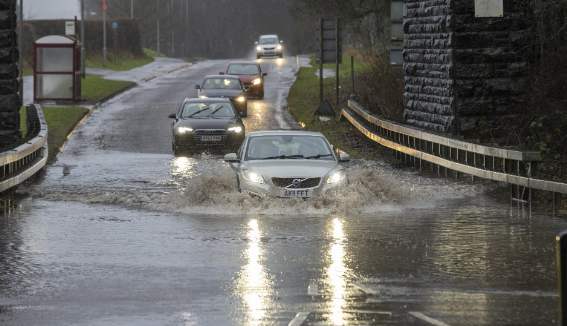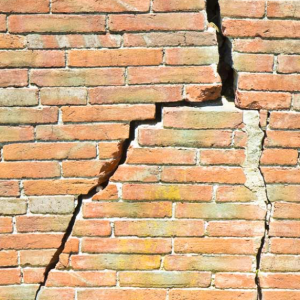
How extreme weather can impact housing
Discussing the weather may be a favourite pastime; however, with our summers slowly becoming more scorching and our winters more unpredictable, it is important to take note of how extreme weather can impact our homes.
Subsidence
Subsidence can occur during long periods of scorching summer weather. Hot and dry weather, particularly if you live in areas with clay soil, can lead to the phenomenon of subsidence. This is caused by the expansion and contraction of the soil beneath your foundations. As it dries out, the building’s foundations shift, with cracks in the walls a telltale symptom.
Drainage dilemmas
Frozen pipes in winter are a homeowner’s worst nightmare. A frozen pipe can burst, causing huge expense and a lot of damage to your property. During the winter season, make sure you regularly maintain and assess your drainage system to get ahead of any issues.
Flooding also poses a risk to your drainage system. Flooding can cause blockages, as can the debris from high winds and stormy weather. Make sure you clear debris from your drains and gutters to prevent further issues and contact a drainage specialist, such as https://www.wilkinson-env.co.uk/drainage-services-cctv-surveys-midlands/drain-jetting/drain-jetting-kingsbury/, for assistance if needed.
Snowfall
Are you dreaming of a white Christmas? A beautiful blanket of snow covering the rooftops might set the scene; however, snow is surprisingly heavy as it builds up, weighing down gutters and roof tiles. When the snow melts, weak spots in your roofing could be vulnerable, so watch out for leaks and protect your home. Professional help is a must to assess winter pipe problems, such as CCTV drainage surveys Kingsbury and the wider area.
Damp issues
We are all familiar with never-ending rainfall, but long wet spells can allow damp to creep into your home. Rising damp happens when water rises through the walls or floors, so keep an eye out for peeling wallpaper, damp spots, or damaged plaster. Penetrating damp occurs due to structural problems such as damaged gutters or walls. You should ventilate your home well to avoid condensation, which may cause mould.





Average Rating